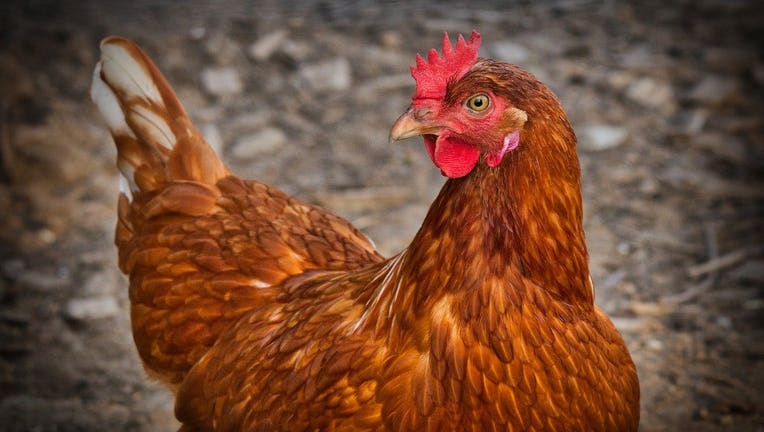Highly contagious bird flu found in west Michigan

MUSKEGON COUNTY, Mich. (FOX 2) - A highly contagious strain of bird flu has been confirmed at a poultry farm on the west side of Michigan.
The Michigan Department of Agriculture and Rural Development announced the discovery of highly pathogenic avian influenza in a commercial poultry farm in Muskegon County.
HPAI, also known as bird flu, is a very contagious virus that can spread through various means, including transmission by wild birds, direct contact with infected poultry, contaminated equipment, as well as clothing and footwear of caretakers.
It's the second discovery of HPAI in a commercial facility in Michigan since HPAI was found in 2022. It's also the second discovery in Muskegon County. MDARD says the movement of wild birds means the threat of transmission will continue to be present.
While unfortunate, the discovery is not unexpected, State Vet Dr. Nora Wineland says.
Direct or indirect contact with infected wild birds have been the point of infection for many of the HPAI-positive flocks in Michigan," Wineland said in a release. "The best strategy any bird owner has against this disease is prevention. It is essential to continue taking preventative measures to protect flocks from wild birds and the germs they could be carrying."
To protect other flocks in Michigan, the affected sites are currently placed under quarantine, and the infected birds will be euthanized to prevent the spread of the disease. These measures are key to maintaining Michigan's commercial food production.
"Michigan's poultry farmers provide the best care for their animals by maintaining among the highest levels of biosecurity in the industry. However, HPAI can be extremely contagious and despite their best efforts, this virus finds its way to the birds," Dr. Nancy Barr, executive director of Michigan Allied Poultry Industries, said. "Events like this are every poultry farmer's worst fear. We are grateful for the partnership of our farmers, the assistance of MDARD as well as the USDA to rapidly respond to this event, helping to protect other flocks and stop the spread."
According to the CDC, the public health risk associated with avian influenza is low. Additionally, no birds or bird products infected with HPAI will be allowed to enter the commercial food chain. It is also important to remember to handle and cook all poultry and eggs properly to ensure safety.
To help maintain the health and safety of Michigan's domestic bird populations, it's important to follow these key steps:
- Prevent contact between domestic and wild birds by bringing them indoors or ensuring their outdoor area is fully enclosed.
- Wash your hands before and after handling birds, as well as when moving between different coops.
- Disinfect boots and other gear when moving between coops.
- Avoid sharing equipment or other supplies between coops or other farms.
- Clean and disinfect equipment and other supplies between uses. If they cannot be disinfected, discard them.
- Use well or municipal water as drinking water for birds.
- Keep poultry feed secure to prevent contact between the feed/feed ingredients and wild birds or rodents.


